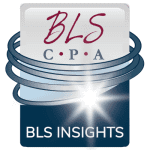
As the end of the year quickly approaches, January 31, 2019, 1099-MISC filing requirement is on the horizon. When you consider that filing the forms up to 30 days late without an extension will result in a penalty of $50 per instance, it’s best to be proactive. Therefore, now is the time to start gathering your records and auditing your vendor records for completeness.
First, identify who and what you are paying. The following payees and transactions are Exempt from receiving 1099-MISC:
Payees who are exempt:
- Governments
- Not-for-Profits
- Colleges, Universities, and other Schools
- Churches
- IRA’s, 401(k), and 403(b)
- Insurance including assurance, reinsurance, and indemnity
- Most corporations – excluding law firms
- Certain foreign recipients (see below)
Transactions that are exempt:
- Payments made with a credit card
- Payments for goods
- Total payments to a payee that are less than $600.
- Payments that are reported on another form including:
- Wages reported on W-2/W-3
- Investment transactions reported on 1099-INT, 1099-DIV, or 1099-B
- Cancellation of Debt reported on 1099-C
- Acquisitions and abandonment of secured property reported on 1099-A
Before making any payments to your vendor, you should request a completed W-9 from the payee if the payee or transaction is not on the exempt list above. If a payee refuses to provide you with a completed W-9 you must withhold 24% of the payments you make to them and submit the payment to the IRS via EFTPS and file a completed Form 945 at year end. There is also a potential for state-required withholding. As a general rule, it is a good idea to request a W-9 (or W-8 in the case of foreign payees) from any company or non-employee person not listed above as EXEMPT, even if they are corporation. Having the payee report to you in a W-9 they are exempt from receiving a 1099-MISC is better than making a wrong assumption and being liable later. If the IRS determines that you should have withheld tax but didn’t, you could be on the hook for the amount of tax plus interest and penalties.
It is also important to file correct 1099s. This starts with making sure you are receiving correct information on the W-9. Consider the following:
- Utilize the IRS’s “On-Line Taxpayer Identification Number (TIN) Matching Program.
- The name in box 1 of the W-9 must match the payee’s tax return
- The IRS does not recognize commas and non letter characters other than “-“ (dash) and “&” (“and” symbol).
- For more information, check out:
- Taxpayer Identification Number (TIN) On-Line Matching
- Matching Program Publication 2018A
Another question to consider is whether the payee is foreign person or entity. If yes, the person or entity must provide you a completed form in the W-8 series that is relevant to their business. If they fail to supply you with the W-8, unless you are able to meet the presumption rules (see Reg 1.1411-1(3)(iii)(A)(1)) for the recipient to be foreign, they are presumed domestic and you must withhold 24% backup withholding until foreign status is documented. Even after receipt of the W-8 series, certain payments can still be subject to a 30% withholding unless they are partially or fully exempt per a tax treaty (or are not FATCA compliant under Chapter 4). Regardless of withholding, payments to foreign persons are reported on Form 1042 by March 15 of the following year. Check out the IRS website to learn more about presumption rules.
As you can see from the information required and fines associated with late filing, now is the time to make sure you have the information needed to issue 1099-MISC in January 2019. If you have any questions, please feel free to contact one of our tax professionals.
Photo by Tax Credits (License)
